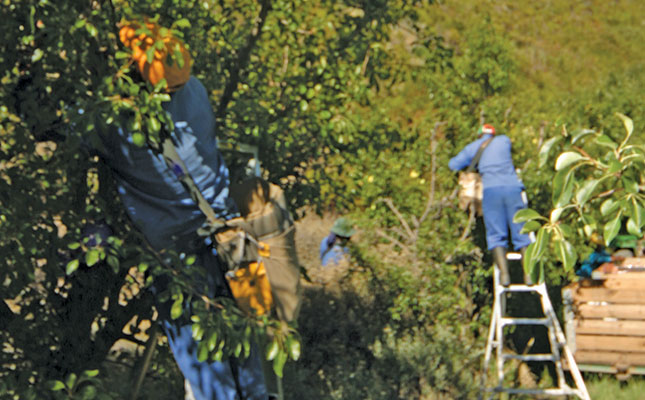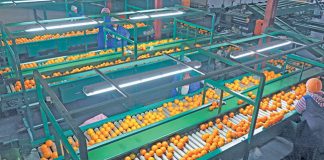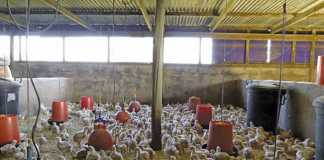
Photo: FW Archive
Farm manager. Environmental manager. Agricultural consultant. Agricultural scientist. Winemaker. Agricultural engineer. These are all agricultural jobs that featured in the Highest Demand division of the National List of Occupations in High Demand: 2018.
Based on the experience of Marianne van der Laarse, managing director of Agrijob Recruitment Specialists, there is also a shortage of qualified horticulturists, agronomists, entomologists and soil scientists in the fruit, vegetable and grain industries, particularly in the 30- to 40-year-old age category, which she labels as the “golden age”.
READ Agri park empowers youth through veggie farming project
“Thirty- to 40-year-olds are in high demand, because many agricultural businesses look for people they can nurture to replace their ageing board of directors and managers,” she says.
Van der Laarse blames negative perceptions of career prospects, learning potential, and the agricultural work environment for the situation.
“The number of students studying in agriculture-related fields has increased internationally due to agriculture enjoying a better profile, thanks to the development of new technologies and growing concern over food security. [But] the trend is picking up more slowly in South Africa due to negative stigmas, resulting in many South Africans still discouraging their children from pursuing an agriculture-related career.”
She adds that salaries are traditionally lower in agriculture than in the industrial and commercial sectors, but have been increasing in the horticultural and agri-processing sectors due to the lack of available candidates with appropriate qualifications, experience and skills.
Salaries of agricultural engineers are also in line with those of engineers in general.
Agriculture, however, offers numerous other advantages, such as the opportunity to work outdoors rather than having to spend all day long in front of a computer. It also provides a chance to participate in a dynamic industry, contribute to food security, and play a role in turning sustainable agriculture into a reality.
READ Agriculture does interest the youth
Like any sector, agriculture carries some risk, cautions Van der Laarse. The current poor economic environment, combined with the drought, has led to some job shedding and the closing down of a number of farm operations and companies.
However, she gives the assurance that people who work hard, continue to develop special skills, and show commitment will find another job.
Skills shortages
The risks of an agricultural specialist not being able to find a job are also lower than in some industries, as the lack of young, suitably qualified and experienced people is expected to remain a challenge for the next 10 to 15 years.
In addition to this, it is easier to work one’s way up in agriculture than in most other sectors.
READ Managers need more than production skills
“It’s always good to get some basic qualification in agriculture. However, if tertiary education is not an option, job seekers need to think about their interests and skills, and try to find a job to match this.
“Various short courses are available to help them improve their skills and knowledge,” she says.
According to Van der Laarse, there is currently a shortage of animal feed scientists specialising in dairy production. In fact, specialists are hard to come by in many areas of agriculture.
They include people with in-depth knowledge of commercial fruit and vegetable production and intensive production systems; people with practical knowledge of plant nutrition, plant protection, integrated pest management and biological pest control; and people with packhouse management, general management, procurement and marketing skills.
Careers are not always as clear-cut as this, however, and skills from other disciplines are becoming increasingly important. The Fourth Industrial Revolution has brought with it a demand for a whole new skill set relating to technological development, automation, data processing and artificial intelligence, and how these technologies can be used to the benefit of the agriculture sector.
In addition to this, concerns about climate change, pollution, food safety and antimicrobial and chemical resistance are leading to a greater demand for skills in conservation management, waste management and biological pest and disease management.
Employability
In spite of this demand, many graduates struggle to find first-time jobs or internships, primarily because of a lack of relevant experience.
Van der Laarse’s solution to this is for tertiary institutions to give their students more practical exposure, and for students to get holiday work and participate in short-term internships of six months up to a year.
Practical solutions
“Students need an opportunity to apply their knowledge, be exposed to the work environment and see what’s happening in real life. The Agrijob.co.za career portal aims to address this gap by making it easy for companies to recruit graduates and students,” she says.
Production experience is required by both the agricultural input industry and the food safety certification industry, including organisations such as GLOBALG.A.P and FSSC22000.
She adds that while graduates in agricultural economics are relatively plentiful, they can apply for jobs in operational positions, marketing and logistics.
There is also a growing demand for specialists in the handling and logistics of horticultural crops, fruit, vegetables, grain and oilseed crops and animals.
“Training and courses in South Africa are comparable with the best in the world,” she concludes.
Email Marianne van der Laarse at [email protected], or Riana Erasmus (recruiter at World Wide Exchange SA) at [email protected]











